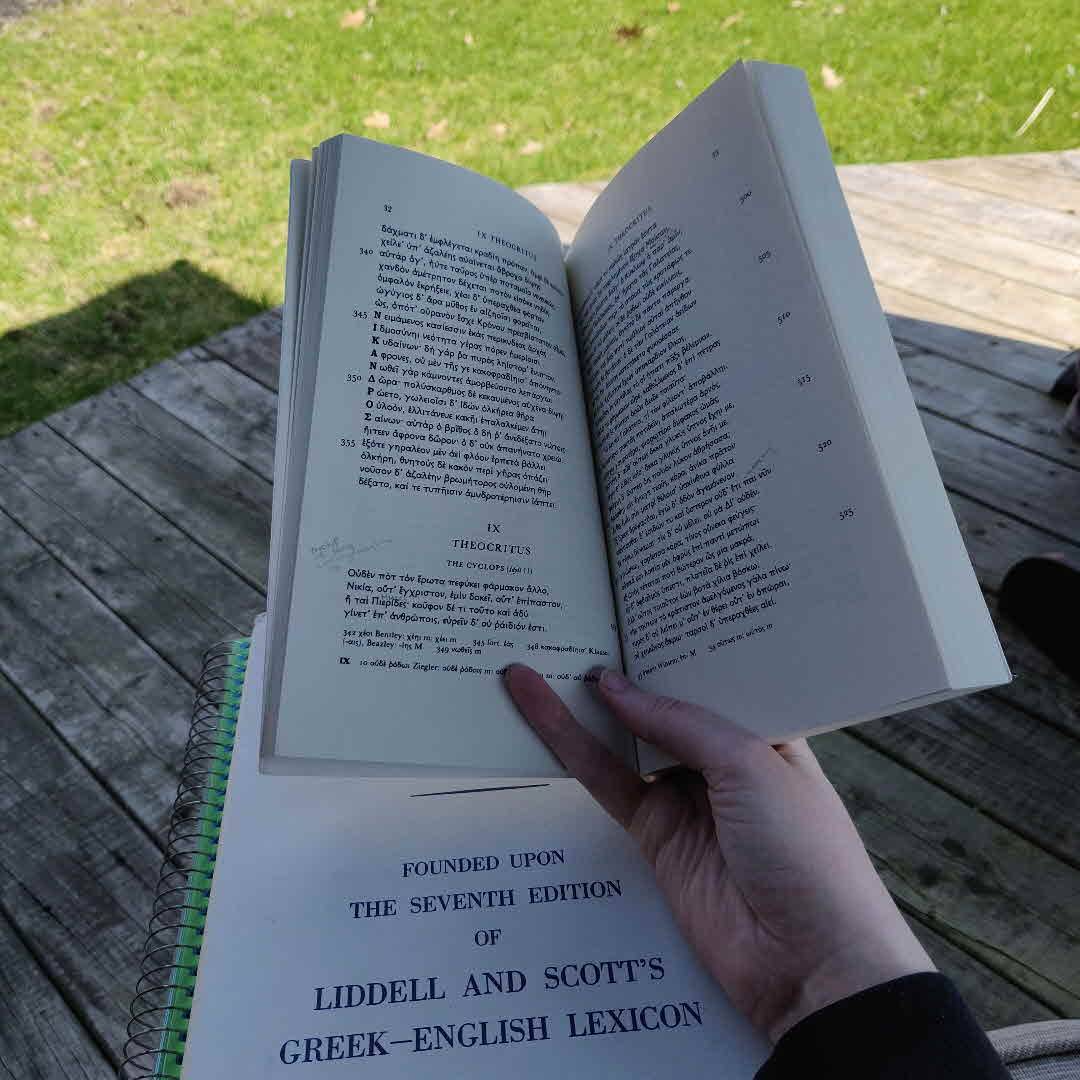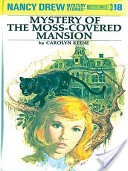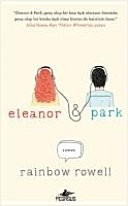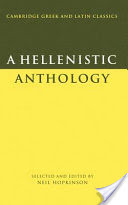
Ever since I finished Circe, I've been thinking about Theocritus' Idyll 11. All the references to pharmakon in Circe reminded me of pharmakon here - there ain't no cure for love - but it's been a while since I read it and the details are foggy.
So going for a re-read now. With my trusty middle Liddell at hand since my Greek is, to be generous, very rusty. If I stop after a few lines, let's chalk it up to this absolutely gorgeous day instead.
TimSpalding Secret rusty-Greek handshake! I no longer attempt Greek poetry myself, so kudos. Hellenistic poetry nearly broke me. Callimachus? Glorious and very hard! 6y
llwheeler @TimSpalding Haha, hello! Thanks! I still attempt poetry but I'm just reading for myself, so I don't force myself to parse every single word as long as I get the jist. So that helps. I think I did read a little of Callimachus in undergrad... I don't have a huge desire to try him again though, not for quite a while at least. 6y
TimSpalding @llwheeler My thing now is to read texts with Greek on one side and Latin on the other. I find one always solves the other, and that way I'm practicing either way. I find reading Greek without help a chore—I'm not in school anymore so it's harder to justify the pain. Also, I don't have the impulse control to read a Loeb without reading too much English :) 6y
llwheeler @TimSpalding That's a great idea! I haven't tried that. Completely agree with you that the pain isn't worth it to read without help. I love Perseus for that, the ability to just click on a word and be like oh, weird aorist, okay, and carry on. 6y
TimSpalding @llwheeler I mostly do it with the NT. But there are early-modern editions of practically every Greek author with facing Latin. People like Jefferson always read their Greek with Latin on the other side. Cheaters. 6y
41 likes5 comments


















